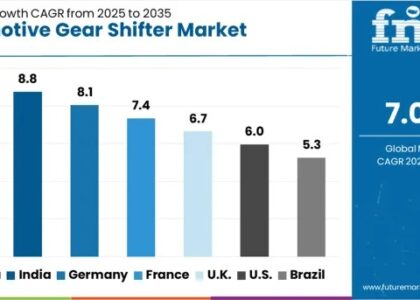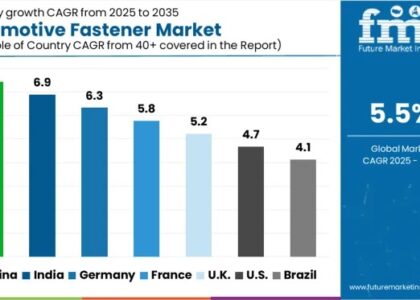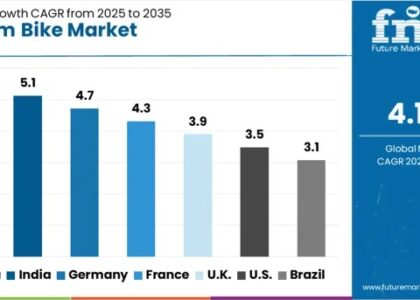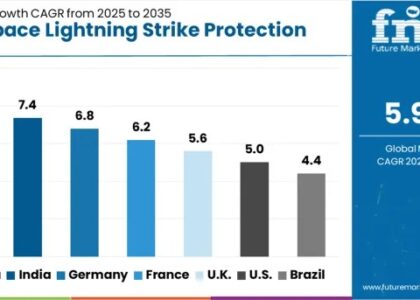Due to a number of factors, such as rising consumer awareness of sleep apnea and its effects on health, improvements in diagnostic technology, and increased usage of at-home sleep testing, the Sleep Apnea Diagnostic Systems Market is expanding significantly. One of the most recent trends in the industry is the rising need for portable and user-friendly sleep apnea diagnostic systems.
Traditional diagnostic techniques can take a lot of time and money, such as polysomnography, which necessitates that patients spend the night in a sleep lab. In order to diagnose sleep apnea in the comfort of their own homes, patients are increasingly using home sleep testing equipment.
Because of their portability, precision, and cost, these portable diagnostic tools are widely valued by both patients and medical professionals. Future market trends have also been impacted by the integration of cutting-edge technology like artificial intelligence (AI) and machine learning (ML) into sleep apnea diagnostic equipment. Accurate sleep apnea diagnosis can be aided by AI-powered devices that can assess sleeping patterns and identify instances of irregular breathing. In addition, ML algorithms have the capacity to continuously learn and enhance the diagnostic process’s overall efficacy.
Explore The Path To Success And Prosperity With Our Sample Report – Get Your Copy Now! https://www.futuremarketinsights.com/reports/sample/rep-gb-777
By 2033, sales of sleep apnea diagnostic systems are projected to reach US$ 9.27 billion, up from US$ 4.81 billion in 2023. This represents a 6.8% CAGR. The global market for sleep apnea diagnostic systems is expanding significantly because to the rising prevalence of sleep apnea and the growing demand for accurate and useful diagnosis.
Systems for diagnosing sleep apnea usually call for sophisticated tools and techniques, which adds to their cost. Limited insurance coverage and payment guidelines for sleep apnea diagnostics create financial barriers for patients and healthcare professionals, which has an effect on market adoption. If advanced sleep apnea detection technologies are to be created, ongoing investment in research and development is required.
The adoption of emerging technologies, such as artificial intelligence and cloud computing, which complicate systems and need the usage of qualified personnel for operation and maintenance, hinders a portion of the market’s growth. Despite these challenges, the emergence of telemedicine and remote monitoring technologies—which include sleep apnea diagnoses—has changed healthcare delivery.
Key Takeaways:
- In 2022, the market for sleep apnea diagnostic systems in North America held a value share of 53.2%, with the United States contributing 48.0%.
- Europe accounted for a value share of 19.3% in the sleep apnea diagnostic systems industry in 2022, with Germany representing 3.2%.
- The actigraphy monitoring devices segment dominated the market in 2022, holding a significant value share of 39.68% based on product type.
- The market value of sleep apnea diagnostic systems reached US$ 4.52 billion in 2022, exhibiting a CAGR of 5.7% from 2018 to 2022.
- Within the market, the sleep centers and clinics sub-segment was predicted to hold a 38.93% share in 2022 based on end-use.
How Intense Is the Competition in the Sleep Apnea Diagnostic Systems Market?
The competition in the sleep apnea diagnostic systems market is intense, driven by the growing demand for advanced diagnostic solutions.
Key market players are continuously engaged in research and development activities to introduce innovative products and gain a competitive edge.
The market is characterized by the presence of both established companies and emerging players, striving to expand their market share.
Competitive strategies such as mergers and acquisitions, partnerships, and product launches are commonly observed in the market.
The companies are focusing on enhancing their distribution networks and strengthening their presence in untapped markets to capitalize on the increasing opportunities in the sleep apnea diagnostic systems industry.
Key Players:
- Koninklijke Philips N.V.
- Becton, Dickinson and Company
- Braedon Medical Corporation
- Advanced Brain Monitoring Inc.
- SOMNOmedics GmbH
- ResMed Inc.
- BMC Medical Co. Ltd.
- Natus Medical Incorporated
- MGC Diagnostics Corporation
- Cleveland Medical Devices Inc.
- Others
Market by Category:
By Product:
- Polysomnography (PSG) Devices
- Ambulatory PSG Monitoring Devices
- Clinical PSG Monitoring Devices
- Sleep Apnea Screening Device
- Nasal Flow Sensors
- Peripheral Capillary Oxygen Saturation (SPO2)
- Actigraphy Monitoring Devices
By End-User Type:
- Home Care Settings
- Hospitals
- Sleep Centers & Clinics
By Region:
- North America
- Latin America
- Eastern Europe
- Western Europe
- Asia Pacific excluding Japan
- Japan
- Middle East and Africa (MEA)
About Future Market Insights (FMI)
Future Market Insights, Inc. (ESOMAR certified, Stevie Award – recipient market research organization and a member of Greater New York Chamber of Commerce) provides in-depth insights into governing factors elevating the demand in the market. It discloses opportunities that will favor the market growth in various segments on the basis of Source, Application, Sales Channel and End Use over the next 10-years.
Contact Us:
Future Market Insights Inc.
Christiana Corporate, 200 Continental Drive,
Suite 401, Newark, Delaware – 19713, USA
T: +1-845-579-5705
For Sales Enquiries: sales@futuremarketinsights.com
Website: https://www.futuremarketinsights.com
LinkedIn| Twitter| Blogs | YouTube






